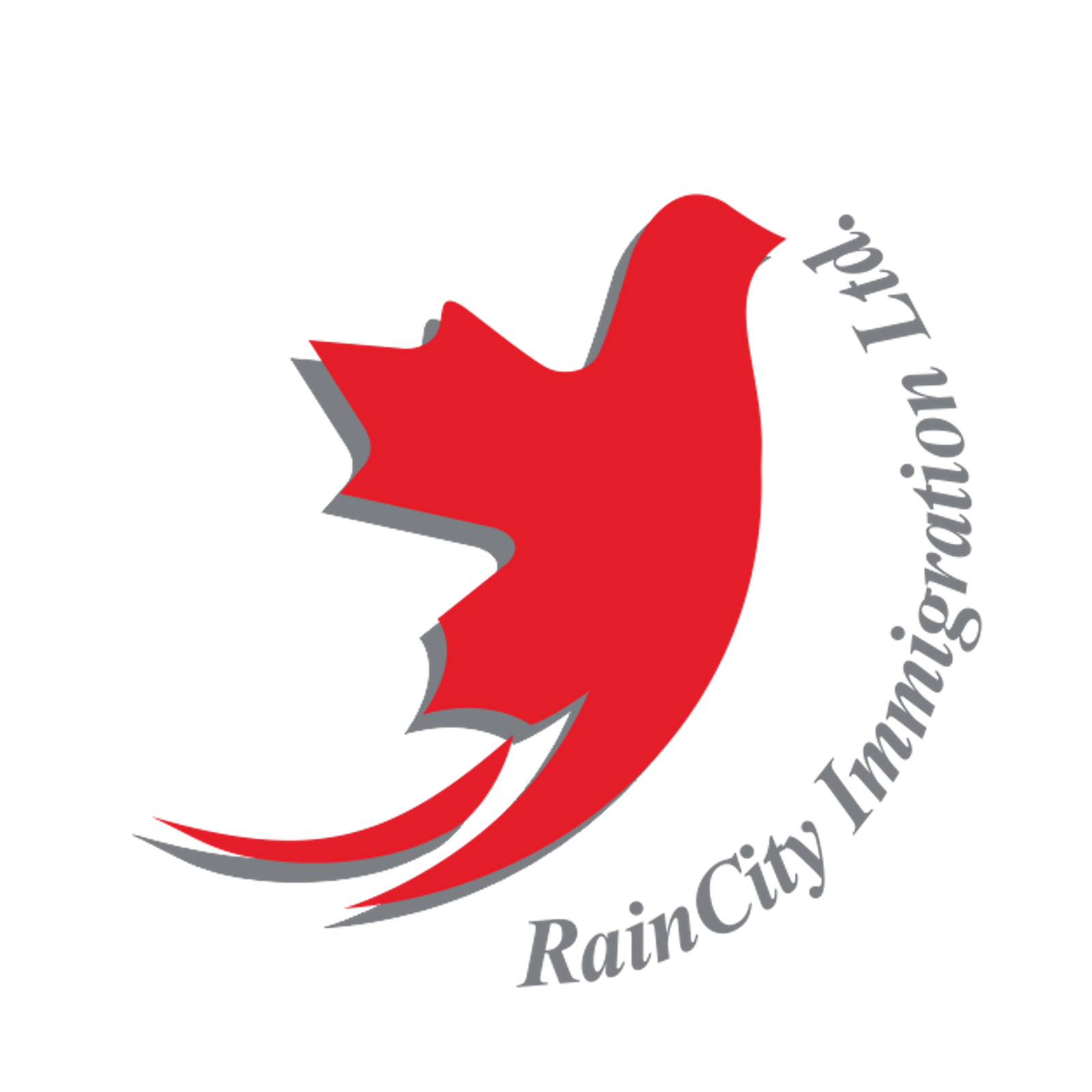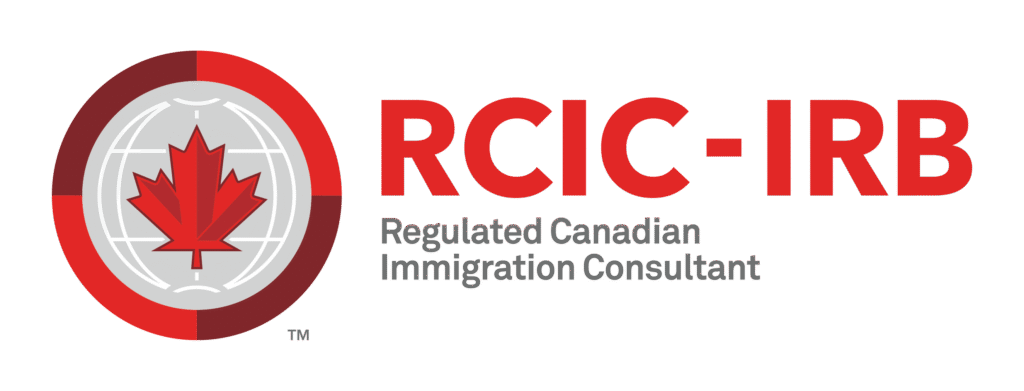Immigration to Saskatchewan

Want to be surprised right off the bat about immigrating to Saskatchewan? Just think about this statistic: until 2009, around 3,000 to 4,000 people were moving to Saskatchewan each year, and that number shot up to 15,000 before the pandemic. This figure gets interesting when you realize that Saskatchewan has just a little over 1 million people living there.
The reason for this growth is that Saskatchewan has the fastest economic growth among all the provinces in Canada. Therefore, moving to Saskatchewan can be attractive for many immigrants. On the flip side, this economic boom has increased the province’s need for labor, which has sped up the trend of immigration to Saskatchewan.
Now that we have a general view about the future of immigration to this province, let’s explore the immigration conditions for Saskatchewan, the benefits of immigrating, the types of immigration programs available, and more.
Benefits of immigrating to Saskatchewan:
– Growing economy
– Good quality of life
– Low tax rates
– Affordable cost of living
What categories does the Saskatchewan Immigration Nominee Program (SINP) include?
– Saskatchewan Skilled Worker Program (International Skilled Worker)
– Saskatchewan Experience Program
– Investment in Saskatchewan – Entrepreneur and Farm Program
These categories are subdivided into several subcategories, which we will explore next.
Immigrating to Saskatchewan: International Skilled Worker Program
1. Job Offer
This is suitable for skilled workers who have received a job offer from an employer in Saskatchewan.
To immigrate to Saskatchewan, if you meet the following conditions, you qualify for this subcategory:
You have a job offer for a skilled position in Saskatchewan.
It doesn’t matter if you live inside or outside Canada.
You meet the criteria of this subcategory:
Achieve at least 60 points on the SINP points assessment grid.
Have at least one year of work experience in the past 10 years in your desired occupation.
Have a minimum language score of CLB 4.
Have a permanent and full-time job offer in Saskatchewan.
Hold a valid SINP Confirmation of Employment letter;
You need to have a job offer in NOC TEER 0, 1, 2, or 3.
2. Tech Talent Pathway
This is suitable for skilled workers who are employed in one of the specialized tech jobs.
Did you know that Saskatchewan is facing a significant labor shortage, especially in high-skilled jobs? That’s why the provincial government has launched the Tech Talent Pathway. This new immigration program helps provincial employers hire specialized labor for tech-related positions.
This program exists in two types: Non-Express Entry and aligned with Express Entry.
3. Occupation In-Demand
This is suitable for skilled workers who have work experience in one of the in-demand occupations in Saskatchewan but don’t have a job offer yet.
If you’re a skilled worker wanting to qualify for immigration to Saskatchewan under this category, you must:
Not have a job offer in Saskatchewan but possess high skills in a job that is in demand in the province.
Be living outside Canada or in Canada.
Meet the criteria of the subcategory.
Score at least 60 out of 110 on the SINP points assessment table.
Have a minimum language score of CLB 4.
Have a university education or have completed a Canada-approved training program.
If your education was obtained outside Canada, you need to have an Educational Credential Assessment (ECA).
Have work experience in occupations that require high skills.
You must have at least one year of full-time work experience (minimum 30 hours per week) in a specialized job within the last 10 years.
Your work experience must be in NOC TEER 0, 1, 2, or 3 jobs that are in demand in Saskatchewan at the time of your application.
Your work experience should be related to your job and education.
The application fee for this program is $350, which is non-refundable.
4. Saskatchewan Express Entry
Suitable for applicants who have an Express Entry profile and work experience in the occupations needed by the province.
This subset is for skilled workers who:
Do not have a job offer in Saskatchewan.
Are living outside of Canada or in this country.
Are in the IRCC Express Entry pool.
You must meet the following criteria:
Have a valid Express Entry profile number and job search code.
Score at least 60 points on the SINP points assessment table.
Meet the federal Express Entry language requirements.
Have completed post-secondary education or a training program that is at least comparable to one year of study in Canada.
For education completed outside of Canada, you must provide an Educational Credential Assessment (ECA).
Minimum work experience requirements:
For skilled professionals (excluding traders): one year of work experience in the last 10 years.
For technical and professional workers: two years of work experience in the past five years.
For Canadian experience class: one year of work experience in Canada in the past three years (for skilled traders and skilled professionals).
Your work experience must be related to your education or training.
You must have a clear settlement plan and prove your financial ability to live in this province.
5. Agriculture Talent Stream
Language score of CLB at least 4; (some employers may require scores higher than 4.)
High school diploma or post-secondary education
At least one year of full-time work experience in the past three years (related to your field); or six months (equivalent to 780 hours) of full-time work experience (more than 30 hours a week) in a position for which the employer intends to hire the applicant with a job offer letter.
In neither case does the work experience need to be continuous.
Applicant’s declaration of intent to work and live in the province of Saskatchewan
Having a full-time and permanent job offer in the agricultural sector in Saskatchewan
6. Health Talent Stream
The conditions for this pathway depend on whether the applicant has applied in the Federal Express Entry pool or not. The requirements in both categories include the following:
Having the conditions to obtain a valid Saskatchewan provincial certificate (if the applicant’s job requires a certificate).
Holding a degree related to the job for which the person has received an offer (master’s or bachelor’s degree; or a three-year college or university diploma; or a two-year diploma from a university, college, trade school, or academic institution).
The applicant’s confirmation of the intention to work and live in Saskatchewan.
1. Applicants who do not meet the Express Entry criteria:
This group of applicants must have a minimum CLB score of 5 in English or French; some employers may require a CLB score higher than 5. For these applicants, the following conditions regarding work experience are essential:
If the person is applying from within Saskatchewan: they must currently be working in the province and have at least six months (780 hours) of full-time work experience (over 30 hours per week) in a job for which the employer has provided the applicant with a job confirmation letter. (In any case, the work experience does not need to be continuous.)
If the applicant has not worked full-time for the desired employer for at least six months, they must have at least one year of work experience in the desired job within the last five years.
2. Applicants who have a file in the Express Entry pool:
They must have an Express Entry file number and a Job Seeker Code.
If the applicant is applying from inside or outside Canada, they must have at least one year of high-skilled work experience in the desired job within the last five years.
In addition to the above, there used to be the Hard-to-Fill Skills Pilot program for semi-skilled or low-skilled workers. This program closed on August 30, 2024.
Immigration to Saskatchewan: Skills Experience Program
1. Skilled workers with an existing work visa.
You must have worked for at least six months in Saskatchewan with a valid work visa.
Have a permanent full-time job offer from a Saskatchewan employer. It should be in NOC TEER categories 0, 1, 2, or 3.
Meet the criteria for the sub-category.
Have a permanent full-time job offer from a Saskatchewan employer.
For food industries, apply under the pilot project sub-category in the hospitality sector.
Have worked for more than six months for the employer who is offering you the job, also with a valid visa.
Your job offer should be for the same position you have worked in the last six months.
Hold a valid work visa issued by IRCC. Refugee applicants in Canada who are requesting asylum from the Canadian government are not eligible to apply.
If your job offer is in NOC TEER categories 4 or 5, you must have at least a CLB 4 language score.
2. Semi-skilled workforce with a work visa in the agricultural field
If you are a semi-skilled worker with these characteristics, you can apply for immigration to Saskatchewan through this route:
Have worked for more than six months with a valid work visa for the employer providing the job or have previously worked at least six months in Saskatchewan.
Have a full-time job offer from a Saskatchewan resident employer. This job must fall under the following national occupation classification (NOC) categories:
NOC 85100: Farm Worker
NOC 85103: Greenhouse Worker
Have a valid job approval letter from SINP.
Have worked for more than six months for the employer making you the job offer, with a valid work visa. Your job offer must be for the same position you worked in the past six months.
If your job offer is in an NOC TEER 4 occupation, you must have at least a CLB 4 score.
3. Health professionals
This sub-category is for specialized workforce that:
Has worked full-time for at least six months with a temporary work visa in Saskatchewan:
Doctor
Nurse
Other health professionals
Meet the sub-category criteria.
Have worked full-time (30 hours a week) for at least six months for the employer offering you the permanent job and have a temporary work visa as a doctor, nurse, or other health professional.
4. Hospitality sector project
This program is for foreign workers who want to apply for permanent residency in Saskatchewan through work in the hospitality sector:
Currently, you are working in Saskatchewan with a temporary work visa through an LMIA.
You must have worked for at least six months with an employer approved by SINP Hospitality.
You should have at least a high school diploma.
You should be employed in one of the following occupations:
Food/Drink Server (NOC 65200)
Food Counter Attendant/Kitchen Helper (NOC 65201)
Housekeeping/Cleaning Staff (NOC 65310)
You must have worked full-time (30 hours a week) for at least six months for an employer offering you a permanent position.
You need a minimum CLB 4.
5. Long-Haul Truck Driver Program
This category is for truck drivers who travel long distances to transport heavy loads and have at least six months of work experience with a temporary work visa for a transportation company in Saskatchewan.
To qualify for this category, you need to meet the following criteria:
You must have worked for at least six months with a temporary work visa in a Saskatchewan transportation company.
You should have a Saskatchewan Class 1A driver’s license.
You need to have a full-time, permanent job offer from your employer.
Your employer must be an approved transportation company in Saskatchewan.
You should have a minimum language score of CLB 4 or higher.
6. Students
If you have graduated from one of Canada’s educational institutions and meet the following conditions, you can apply for immigration to Saskatchewan:
You need to have worked for at least six months (or 780 hours) with pay in Saskatchewan.
You need to have a permanent, full-time job offer in your field of study from an employer based in Saskatchewan.
More information about the subcategories of the Saskatchewan Experience Program.
Immigrating to Saskatchewan: Entrepreneur and Farm Program
The Saskatchewan provincial investment program includes three subcategories, which we will review together.
1. Saskatchewan Entrepreneur
This program, known as the Saskatchewan Entrepreneur Program, is for immigrants who want to move to Saskatchewan to establish or partner in a business and actively participate in its management while living in the province.
So, let’s go over the steps of this program:
In the first step, you submit an Expression of Interest (EOI) for the Saskatchewan Provincial Nominee Program. Once your EOI is accepted, you will be invited to submit your application.
Starting a business
Receiving your nomination
Through the Saskatchewan Entrepreneur Program, you and your family can set up, buy, or partner in a business in Saskatchewan, and actively take part in its management while living there.
You need to meet the following conditions to be eligible to immigrate to Saskatchewan through the Entrepreneur Program:
Have a minimum of CAD 500,000.
Have at least three years of relevant business management or entrepreneurship experience gained in the last ten years.
Have the financial capacity to invest at least CAD 300,000 in Regina and Saskatoon, or at least CAD 200,000 in other cities of Saskatchewan.
If you are invited to submit an application, you must submit a Business Establishment Plan (BEP). Your BEP must include the following:
Your business establishment plan should align with the points-based system of the Saskatchewan Entrepreneur Program.
Own at least one-third (33%) of the shares of a business in Saskatchewan, unless your total investment is CAD 1 million or more.
Commit to taking on daily management of the business.
Create at least two job opportunities for two individuals residing in Saskatchewan, and these two individuals must not be your relatives.
2. International Graduate Entrepreneur Program
The International Graduate Entrepreneur Program is specifically for international students who graduate from a university in Saskatchewan and wish to become entrepreneurs to immigrate to the province through this route.
Through the SINP entrepreneur program, you and your family can start, acquire, or partner in a business in Saskatchewan, and actively participate in its management while living in Saskatchewan.
Through this program, you can start, buy, or partner in a business in Saskatchewan and actively manage it during your stay in the province.
You need to meet the following criteria:
Be a resident of Saskatchewan and at least 21 years old.
Have a university degree from a recognized post-secondary institution in Saskatchewan.
Hold a valid Post-Graduation Work Permit (PGWP).
Have a minimum language score of CLB 7.
3. Program for Farm Owners and Operators
If you meet the following conditions, you can apply for immigration to Saskatchewan through this program:
Financial ability: Have a net worth of CAD 500,000.
Mandatory visit to Saskatchewan: You must travel to Saskatchewan for at least five business days.
Knowledge and experience in farm operations: You need to provide documentation showing you are an experienced farm operator.
Have a practical proposal for an agricultural plan in Saskatchewan.
Steps to Immigrate to Saskatchewan
The first step to immigrating to Saskatchewan is to see which immigration programs you qualify for. The steps for each of the programs and subcategories differ, which we have explained thoroughly on the respective program pages.
In some cases, you may need to submit an Expression of Interest (EOI) in the OASIS system first. Based on your answers to the questions asked when submitting the EOI, you will earn points. Applicants with the highest points will receive an invitation from the province to apply through the Saskatchewan Immigration Nominee Program (SINP).
In programs aligned with the Express Entry system, applicants in the Express Entry pool are selected, or nominated, by the province. Upon receiving a provincial nomination, these individuals will get an additional 600 points and can submit their application for permanent residency in Canada.
Studying in Saskatchewan
What makes studying in Saskatchewan attractive is the low unemployment rate in the province, the free health insurance coverage for international students, and also the reputable education system. According to statistics published in 2021, the number of foreign students in the province of Saskatchewan was 1,900.
Frequently asked questions
How can I immigrate to Saskatchewan?
The first step to immigrating to Saskatchewan is to determine which category or categories you qualify for by checking the eligibility criteria. Once you’ve done that, you should look into the application process for your chosen category.
In some cases, you might need to submit an Expression of Interest (EOI) as a “pre-application.” Based on the responses you provide when you submit your EOI, you will be given a score. Those who score the highest are invited to apply through the SINP website.
Is the Saskatchewan PNP easy?
The Saskatchewan provincial immigration program is known for being straightforward. Of course, it also depends on your situation. For instance, if you are a skilled worker living abroad and have certain criteria, or if you are a holder of a work visa in Saskatchewan, permanent immigration to Saskatchewan might be easier.
Additionally, if you are looking to start a business, including a farm, Saskatchewan can be a good option if you meet certain criteria.
How long does it take to immigrate through the Saskatchewan provincial program?
Processing times can vary.
The processing time for the International Skilled Worker program depends on the subclass. For the Express Entry and In-demand occupations subclasses, it can take over 30 weeks in some cases. However, for the Job Offer subclass, the processing time is only 4 weeks. For the Saskatchewan Experience program, the processing time can be as little as 1 to 2 weeks. This is because applicants are already living in Saskatchewan. The processing time for the International Graduate Entrepreneur and Entrepreneur and Farm categories is 14 weeks.
Can I immigrate to Saskatchewan without Express Entry?
Yes. You do not need an Express Entry profile to immigrate to Saskatchewan unless you are looking to move through the Express Entry subclass under the International Skilled Worker category.
Is the Saskatchewan provincial immigration program currently open?
Yes
Who can apply for the Saskatchewan Immigrant Nominee Program (SINP)?
If you are interested in immigrating to Saskatchewan, there are several options available depending on your situation.
Skilled workers living outside of Canada who want to live and work in Saskatchewan may qualify through the International Skilled Worker program.
The Saskatchewan Experience program covers foreign workers who are currently in Saskatchewan, such as work permit holders and international students.
Entrepreneurs wishing to actively own and manage a business in Saskatchewan must immigrate through the Entrepreneur and Farm category.
Finally, the International Graduate Entrepreneur stream is for international graduates of a post-secondary institution in Saskatchewan who want to start a business in the province.
I have a SINP score above 60; is that enough?
If you are looking to immigrate to Saskatchewan through the International Skilled Worker program, you must score at least 60 out of 110 on the points assessment grid.





